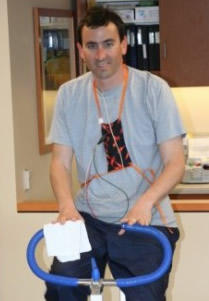Emotional And Behavioral Changes After Heart Surgery… For Beth & Erik
Written By: Adam Pick, Patient Advocate, Author & Website Founder
Medical Expert: R. Scott Mitchell, MD
Page Last Updated: July 8, 2025
Beth just emailed me about her husband’s problematic recovery from heart surgery. She writes, “Hi Adam – My husband had heart valve replacement surgery (from mitral valve prolapse with regurgitation) two months ago. Since then, he seems to be experiencing some emotional and behavioral changes after heart surgery. Although his heart is doing great, Erik seems to be “a little down” and somewhat “out of it” since the heart surgery. Any thoughts? Thanks, Beth.”

Here are my thoughts for Beth:
As patients, we enter the operating room with two critical thoughts. The first thought is, “Please let me live!” The second thought is “Please fix my heart so that I can live longer!”
After surgery, the relief of living and having fixed hearts is not enough for many patients. Instead, many patients are bombarded by difficult thoughts relative to pain, complications and ultimately, a challenged recovery. That said, these thoughts can manifest in emotional and behavioral changes after heart surgery.
In my own research, I learned that 30%-75% of patients report feeling anxious or depressed after heart surgery. That’s a pretty significant number. Personally, I experienced both emotional and behavioral changes following my valve replacements. I was moody. I was irritable. I was fatigued. I was tired of the pain.
As Doctor R. Scott Mitchell notes, “I think the cause of cardiac depression is entirely unknown… But, it could be the psychological effect of anticipating surgery, the prolonged time under anesthesia, or the results of the heart-lung machine.”
On this note, reports suggest that these emotional and behavioral shifts are increasing in frequency. In the opinion of many, this increase is directly related to short hospital stays in which patients are discharged too quickly after the operation. Today, patients are in the hospital five days on average. In the past, patients would have ten to fifteen days in the hospital to assimilate their new reality, according to Dr. Richard Fogoros.
As to what can be done about the emotional changes after heart surgery, I took several guided steps including attending cardiac rehab classes, spending less time alone, ending my use of Vicodin, etc.

I hope this helps explain a little more about the common emotional and behavioral changes after heart valve replacement surgery and heart valve repair surgery. Scroll down to see over 45 patient comments.
Related Links:
Keep on tickin!
Adam
|
Cheryl says on August 25th, 2018 at 1:12 pm |
|
Anna Marie, |
 |
|
Anna Marie Piersimoni says on August 26th, 2018 at 3:03 pm |
|
Thanks for your reply and wishes. And I cerainly think the brain and heart are linked and that both link to many body parts and function overall! ❤️🤯😱 Also, intestingly enouhg,he had his aoritc valve replaced almost 20 years ago. Doctor’s thought he had cough due to allergic bronchhitis and treated him with steroids – WRONG. He had a bacterial infection (from what – who knows, maybe dental work). The steroids caused the infrection to worsen into enocarditiis which ate out the weakened valve. No idea how much prolapse might have been there or if the cuase was congenital or not. There was nothing left to go on. Much worse situation than this one, high fevers, chills, shaking…and several more ways to die. Well, we made it through but we were so much younger then. We’re older than that now. 🤗 |
 |
|
Meredith T says on September 16th, 2018 at 10:00 am |
|
I had mitral valve repair almost three months ago. I am 74 years old.I have not experienced anger or depression but I am definitely noticing memory issues. I go to speak a word and don’t have it on the tip of my tongue as I always have had. This is rather frightening to me because being articulate is part of my identity. |
 |
|
Rohit Bingi says on December 9th, 2018 at 9:25 am |
|
Hi! I’m Rohit from india. My mom had recently a heart volve replacement MVR operation ,since then her mental breakdown started. She is afraid of hospital doctors and nurses, she thinks that they irritated her and tried to kill her and did some nasty things with her. And if she is discharges from hospital they are going to kill my family. |
 |












